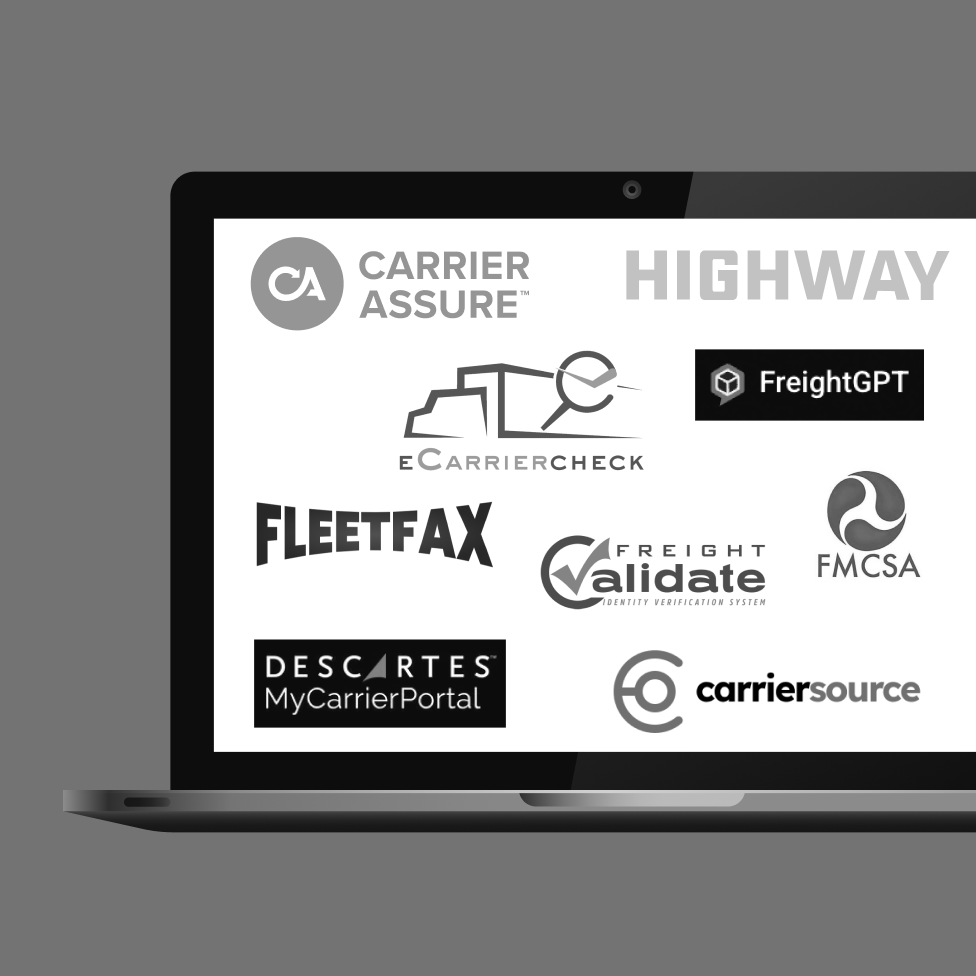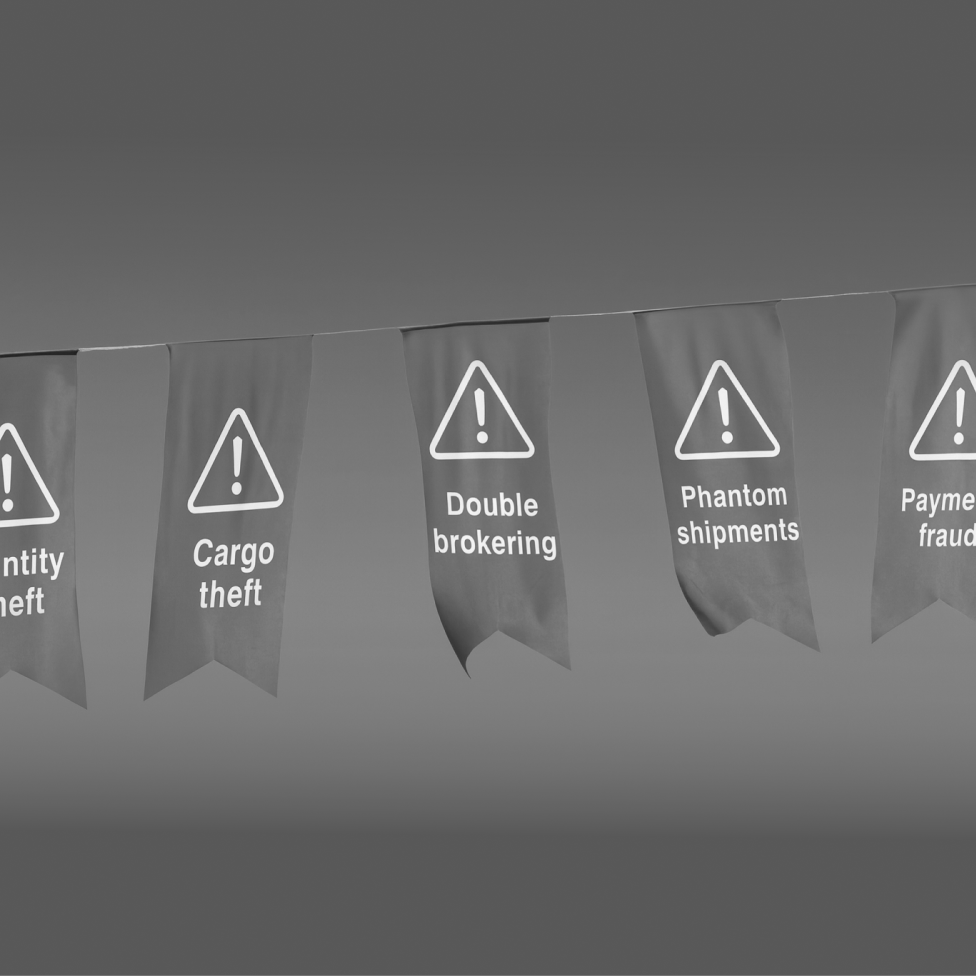Taxes can be confusing, especially for freight brokers who don’t have large accounting teams. Adding to the confusion, most brokers use some kind of freight factoring service, which can make tax season even more complex by changing how payments are sent, adding fees, 1099s to carriers, and more.
In this article you’ll learn some of the impacts factoring can have on your taxes, and what your brokerage needs to know for the 2024-2025 tax year and beyond.

Get started on your Profit & Loss Statement with our free template.
Overview of factored receivables and tax considerations
In this article we may use the terms freight bill factoring, invoice factoring, and factored receivables interchangeably, which all essentially mean the same thing: A freight broker sells unpaid invoices to a freight factoring service in exchange for a slightly discounted amount of cash up-front.
Factoring gives brokers enormous flexibility, allowing them to pay their carriers without waiting for their customers (shippers) to pay their invoices. While factoring can provide liquidity to brokers, it also raises tax questions such as:
- “Are factored receivables taxable?”
- “Are factoring fees tax deductible?”
- “Do factoring companies send out 1099s?”
- “Are there different tax considerations for recourse and nonrecourse factoring?”
- “What happens to my taxes if I factor an invoice at the end of the year that isn’t due until the new year?”
- “Is factored income taxed differently from regular income?”
These are fantastic questions because factoring can have some impact on your tax deductions and liability. We’ll do our best to address each of these questions (and more!) in this article.
What is invoice factoring, and why does it matter?
Invoice factoring is great for freight brokers and trucking companies, which is why most brokers use a factoring service. Factoring is one of the only ways to collect cash upfront for invoices, without having to wait 30-90 days for customers to pay.
The biggest benefit of factoring is by providing your brokerage with smooth and predictable cash flow. Factoring gives brokers peace of mind knowing they’re not going to be hanging on the whims of their biggest client’s accounts payable department. Plus, for growth-minded brokerages, it gives you the working capital you need to invest back into your business.

Factoring works by selling your unpaid invoices to a factoring company for a small fee or factoring rate, which is usually 1-5% of the invoice. Your factor pays you upfront for the remaining balance of the invoice, and then collects on the invoice from your customers.
This differs from traditional loans and lines of credit which have high interest rates, add debt to your balance sheet, and decrease your free cash flow.
Essential bookkeeping terms for understanding factoring and taxes
Accurate bookkeeping is essential for factoring companies to maintain compliance and ensure smooth financial operations. Understanding key terms related to factoring and taxation can help brokers manage their records effectively and avoid common pitfalls.
Recourse Factoring: Recourse factoring (also known as full recourse factoring) means that your brokerage takes on any liability for unpaid invoices. Essentially: if your customers don’t pay your factor, you’re responsible for collecting on the invoice and paying back your factor.
Nonrecourse factoring: Nonrecourse factoring is the opposite agreement, the factor is responsible for collecting debt from the broker’s customers if the customers don’t pay. This often comes with additional fees, qualification requirements, and a more difficult approval process.
Learn more about recourse vs. nonrecourse factoring here.
Rate confirmation: The documentation that confirms the terms agreed upon between the broker and carrier, including dates, rate and payment terms, shipper and carrier details, etc. When submitting an invoice for factoring, you’ll need to provide this information to the factor.
Working capital: Your working capital is the money that is currently available to use for upcoming business expenses.
Want to make sure your bookkeeping isn’t slowing you down? Check out our blog on 5 Signs Your Freight Invoice Bookkeeping Is Holding You Back.
Navigating the tax landscape with factored receivables
While the tax implications of freight factoring seem complex, most of the income you receive from factored receivables is generally considered ordinary business income. Your business is simply receiving it early compared to when it would have been paid by your customers, minus a fee. This income is reported in the same way as any other income your business receives.
One of the tax benefits of factoring freight brokers is that factoring fees, interest, and costs associated with factoring are considered business expenses and are generally tax-deductible.
Strategic tax planning with factoring services
It may make sense for your brokerage to structure factoring agreements to change the date when income is received by your brokerage or to maximize tax benefits. These situations are complex and broker-specific, consider consulting a tax strategist for personalized advice.
One common pitfall for brokers is treating factored invoices like a loan instead of a sale of assets (your invoices/accounts receivable). Income from factored invoices is treated as regular income, minus any factoring fees or interest payments. Failing to report factored income can lead to costly penalties and fees down the road.

Looking for ways to reduce your tax burden? Check out our blog on 6 Smart Tax Deductions for Trucking Companies.
FAQs and best practices
Do factoring companies send out 1099 forms?
Factoring companies generally do not send out 1099 forms to brokers, as they are not making payments for services rendered but rather advancing funds based on purchased invoices. Understanding these distinctions can help brokers properly manage their tax obligations.
Who sends 1099s to my carriers?
It's the broker's responsibility to send the 1099 to carriers, but it is not legally required. The Income Tax Regulations, under Section 1.6041-3(c), provide an exemption for freight payments from the requirement of 1099 information reporting. This exemption specifically pertains to the reporting of payments made for services involving truck, rail, ship, and air freight.
Do I need to pay taxes on factored invoices?
Yes, factoring your receivables is income that you will need to pay tax on.
Are factoring fees tax deductible?
Generally, yes. Factoring fees and interest payments are tax deductible.
Are there different tax considerations for recourse and nonrecourse factoring?
In most cases, no. Recourse and nonrecourse factored receivables are treated as regular income. The only difference is if a customer defaults on their debt, in which case that debt may be written off by whoever owns it.
What happens to my taxes if I factor an invoice at the end of the year that isn’t due until the new year?
Generally, you will owe tax on income in the year it is received. So if you received cash from your factor in 2023, you’ll owe tax on that income for the 2023 tax year.
Easy Tax Preparedness with Denim
Denim's reporting tools make it easy to prepare for tax season. Our Integrated Ledger report utilizes batch accounting methods to consolidate transactions by category, giving you a comprehensive 360-degree view of your financials. With Denim, brokers can streamline their bookkeeping processes, track expenses efficiently, and simplify tax reporting.
The guidance we’ve outlined here may change based on your specific business, tax situation, and other factors. Consult your tax advisor for tax recommendations specific to your business.
Denim’s automated solutions streamline your back-office operations. Explore our solutions to see how Denim can help your business scale efficiently.
There's a better way


.png)




